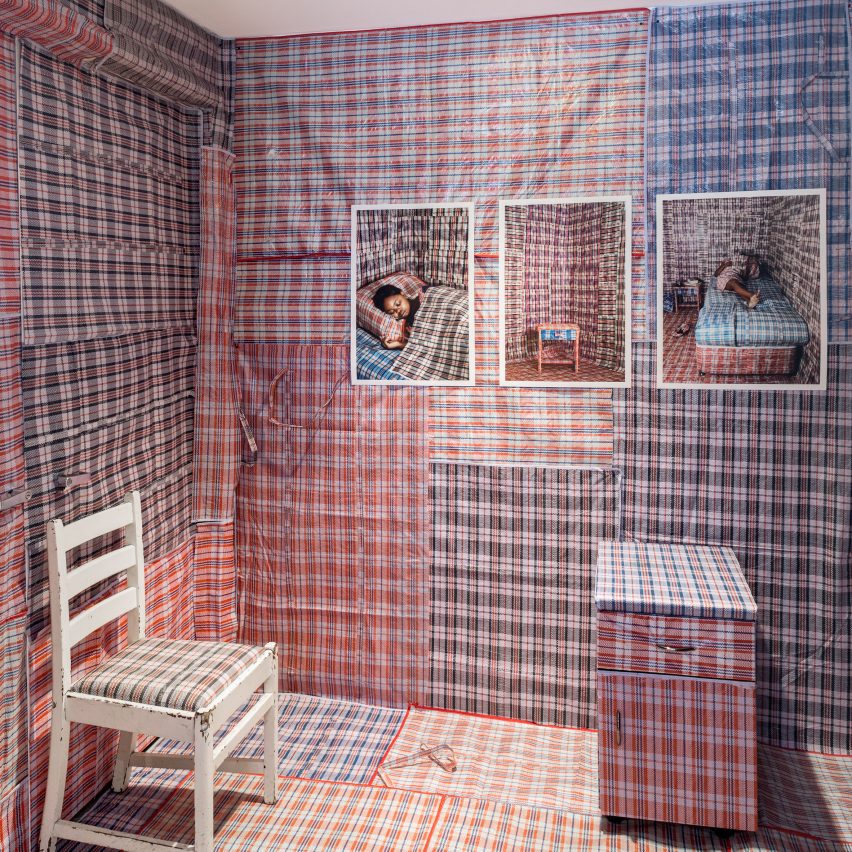
A mirror-cum-observatory and a lockdown lounge chair with an integrated bar feature in an exhibition at New York's Friedman Benda gallery that explores the value of design objects beyond just their practical use.
The show, titled Split Personality, was curated by Alice Stori Liechtenstein and features furniture and homewares from 17 different designers.
Each piece was chosen because it has a symbolic value beyond what meets the eye, exploring topics from immigration to biodiversity loss through different materials and production methods.
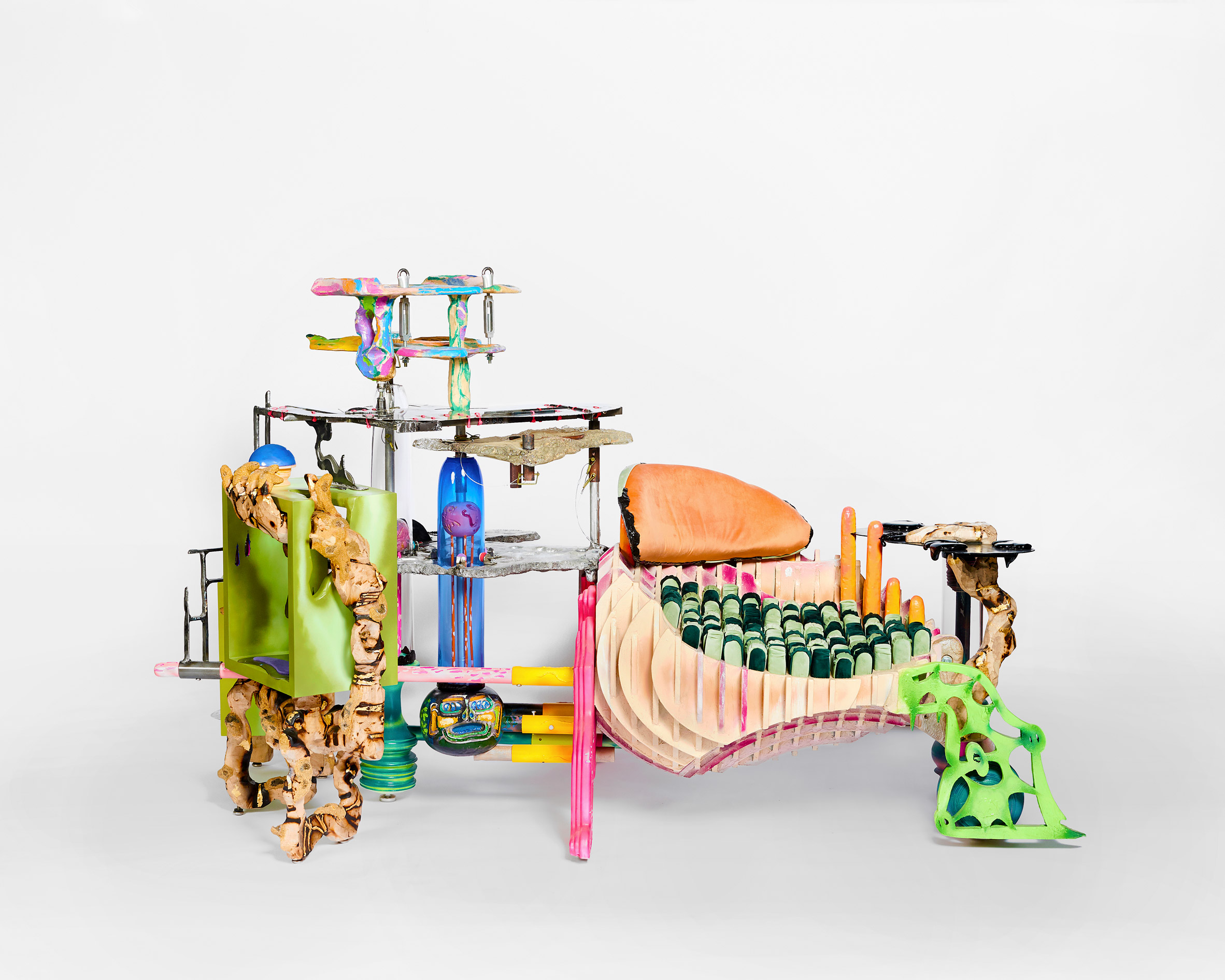
The exhibition focuses on the stories the objects have to tell, Liechtenstein told Dezeen, using chairs as an example.
"There are thousands of chairs and the most comfortable chair has already been invented and reinvented 100 times," she said.
"So a lot of the time, what we want when we're looking for a chair is not just something to sit on. But what makes an object particularly interesting are the stories it is able to tell once you have the time to discover them."
In this way, Liechtenstein explains, the exhibition rejects the strict Bauhausian ideal of form over function. "We're over it," she said. "I see the message as a form of function."
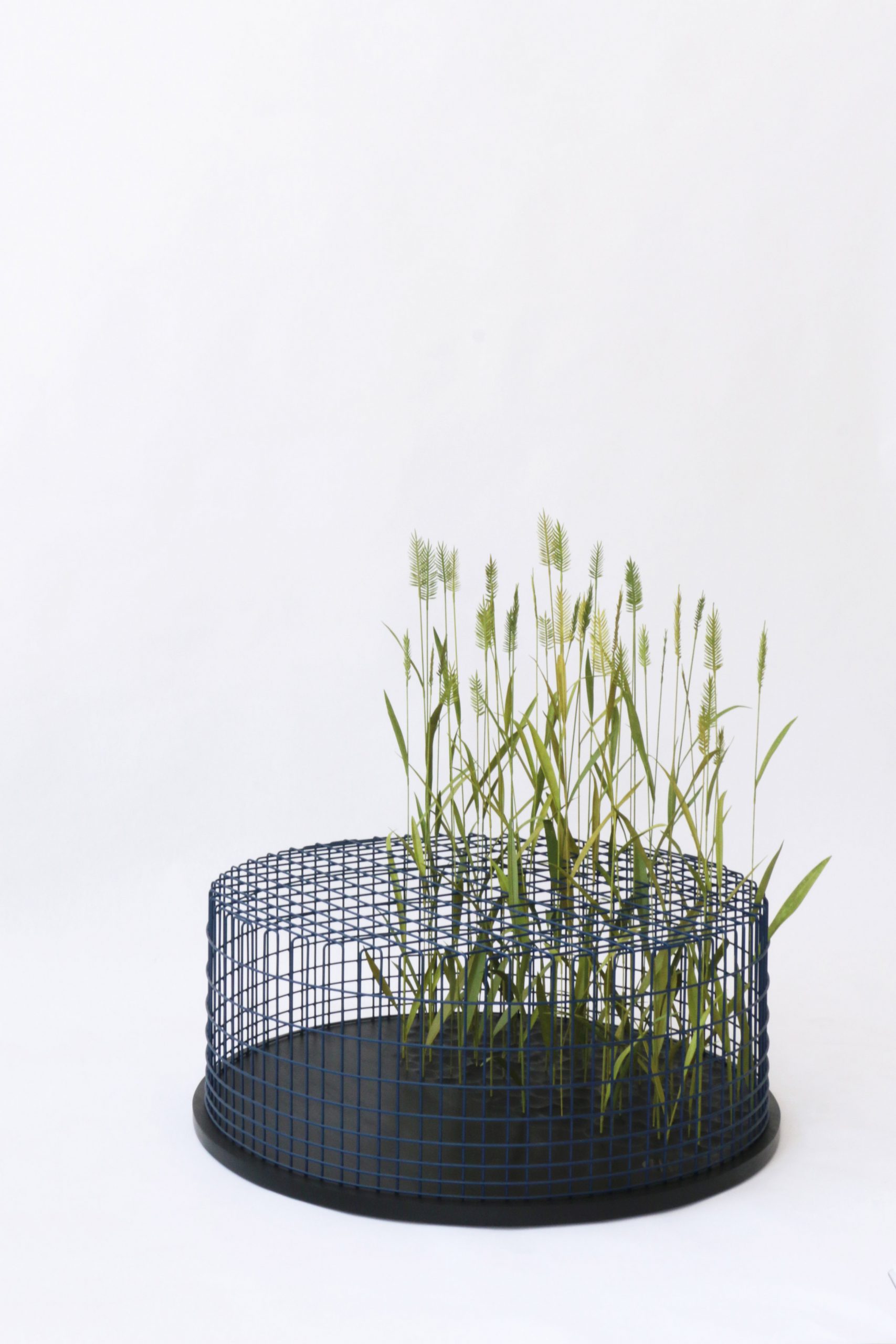
Several of the projects on show are the culmination of extensive research projects, among them a coffee table from Viennese duo Mischer'Traxler. Protruding from its gridded frame are brass effigies of a near-extinct grass species known as agropyron cristatum, of which only around 200 specimens remain in Austria.
"They are only making five editions of this table because on each table there are 40 brass stems. So it's a way of representing the number of plants that really exist in nature," Liechtenstein explained.
"I think this kind of exercise is very useful because a lot of the time, we don't realise what a number means until we see it visualised."
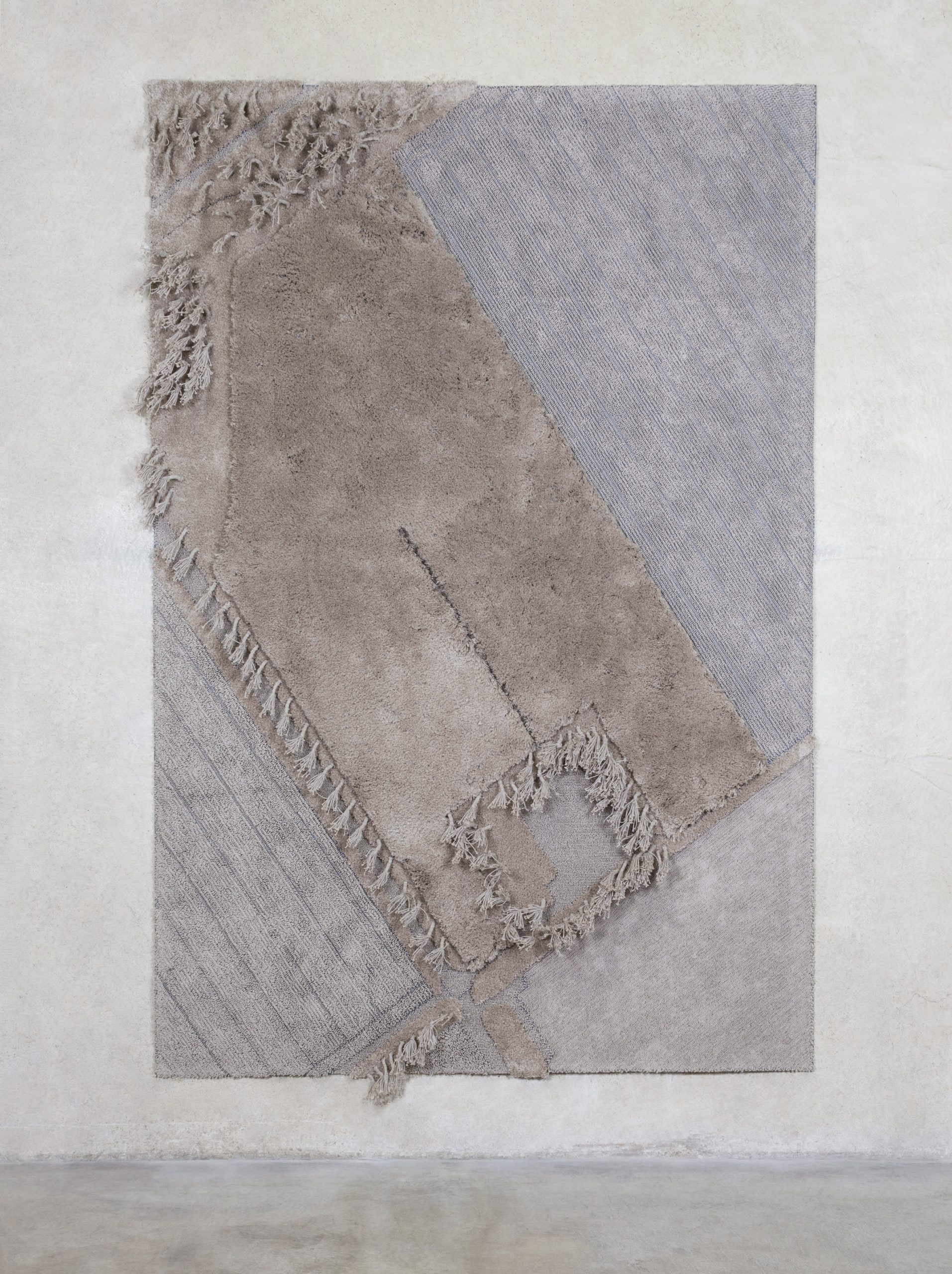
Disillusioned with the fact that she couldn't trace a piece of linen yarn back to the flax field where it originated, Dutch designer Christien Meindertsma decided to acquire a piece of land and grow the crop herself.
From her yield she created a chair and a series of textiles, including a shaggy rug on show at the gallery.
"For her, it's not just about one rug," said the curator. "The real design project is about making sure that she knows where the material is coming from, that it's treated properly, that there are no damages to the environment."
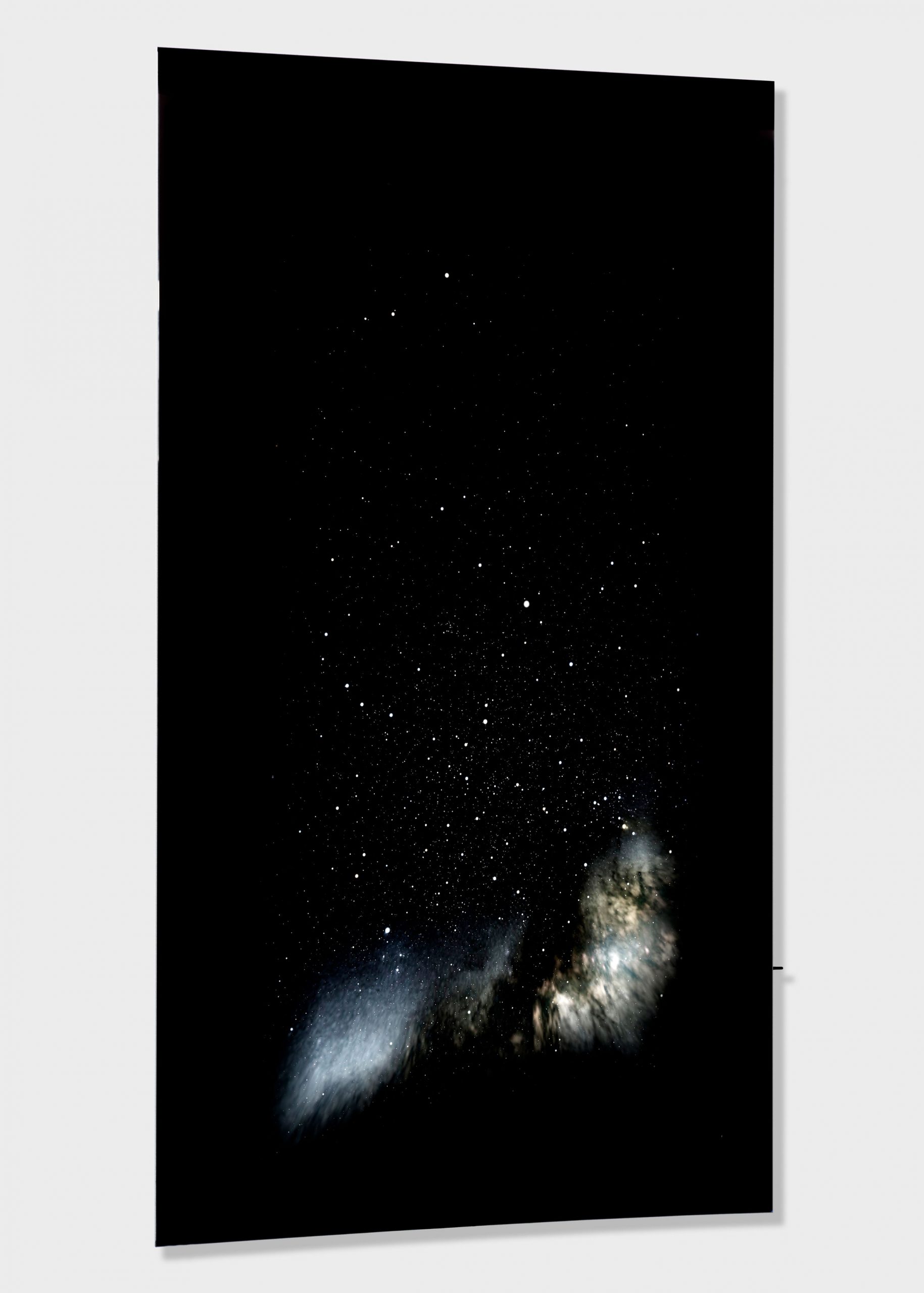
A more abstract exploration of our relationship to nature is the Observatorium Mirror by Commonplace Studio – an obsidian screen in which Liechtenstein says you can see yourself "just well enough to put lipstick on".
Simultaneously, the mirror also shows NASA images of far-flung galaxies that visitors can zoom in and out of using a focus pin.
"We're so used to seeing ourselves in the mirror and the mirror is all about you. Whereas in this instance, you're really confronting yourself with the immensity of the universe and reflecting on the larger world," added the curator.
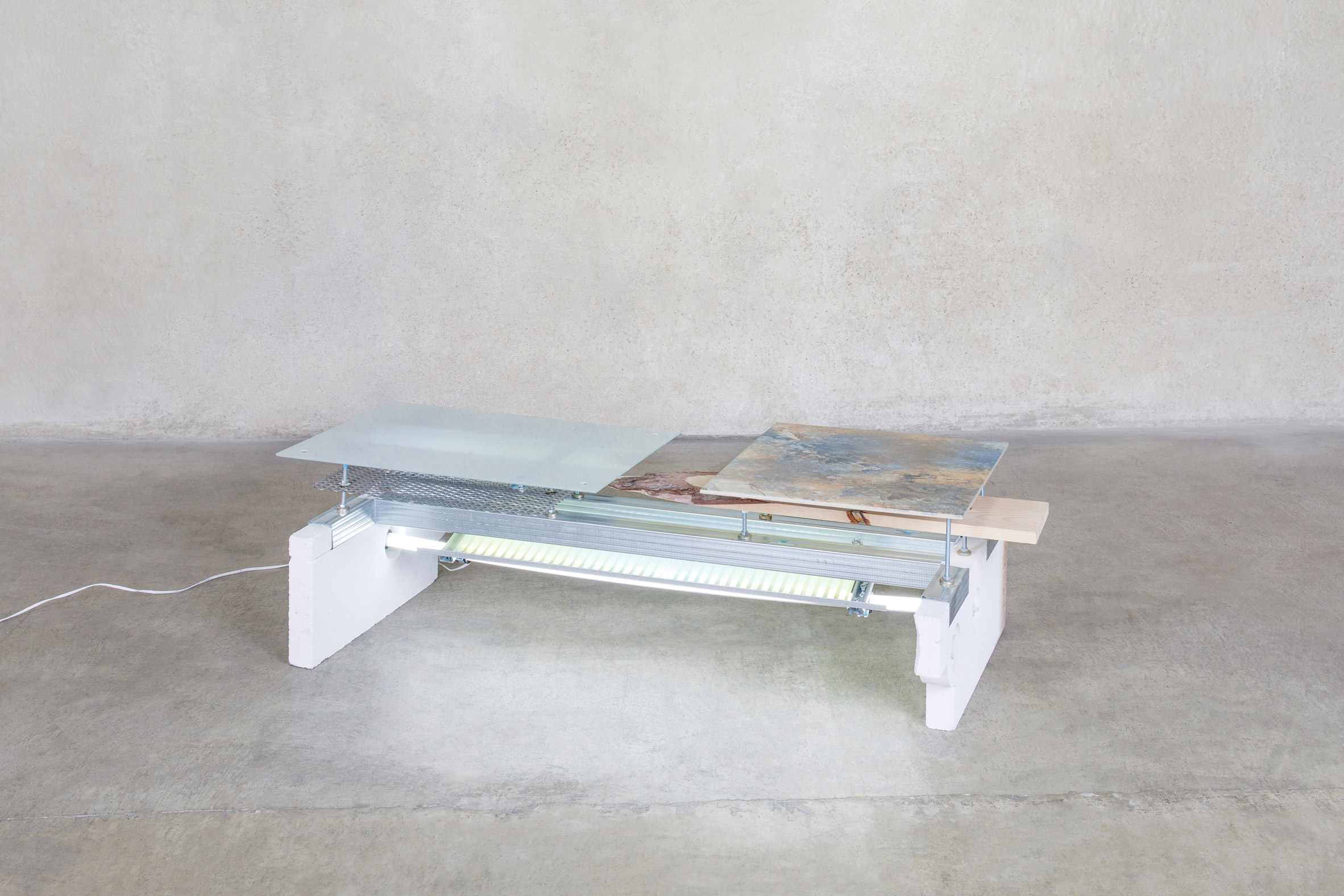
Other designs subvert function in a literal way by repurposing objects for new uses, with Belgian designer Arnaud Eubelen assembling a light and side table from discarded building materials.
Similarly, Eindhoven-based Ismaël Rifaï made a bench by taping blankets and plastic bottles to an iron trolley frame, inspired by the inventive ways that goods are transported across the border in the Spanish autonomous city of Ceuta in Morocco.
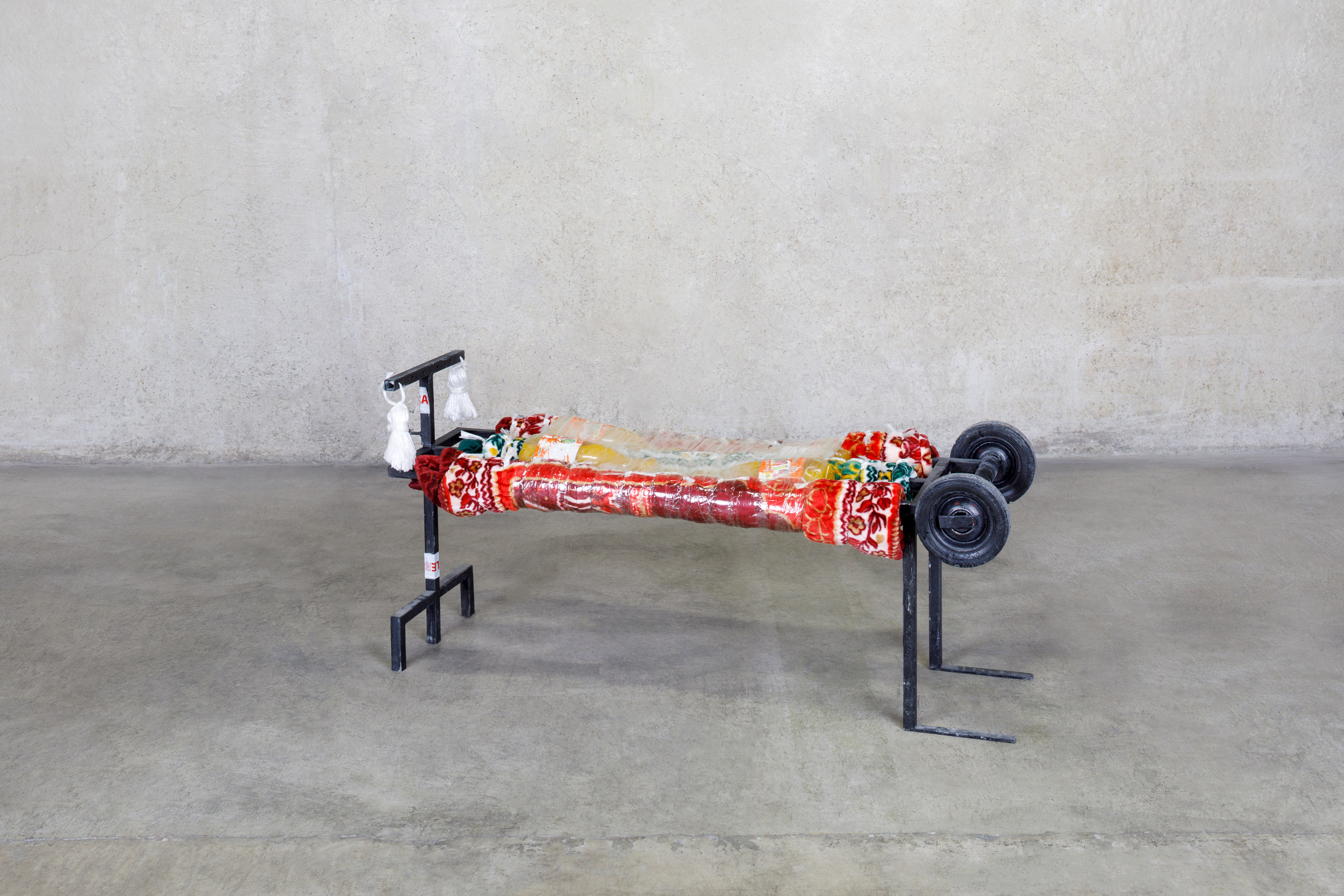
A small room off the main exhibition space is covered from floor to ceiling with checkered, plastic mesh bags, as is the furniture within it, creating the claustrophobic impression of stepping inside one of the bags themselves.
The installation by South African photographer Nobukho Nqaba is based on her Umaskhenkethe photo series and explores how these bags have come to act as emblems of migration, known by different names around the world – such as Ghana Must Go bags in Nigeria.
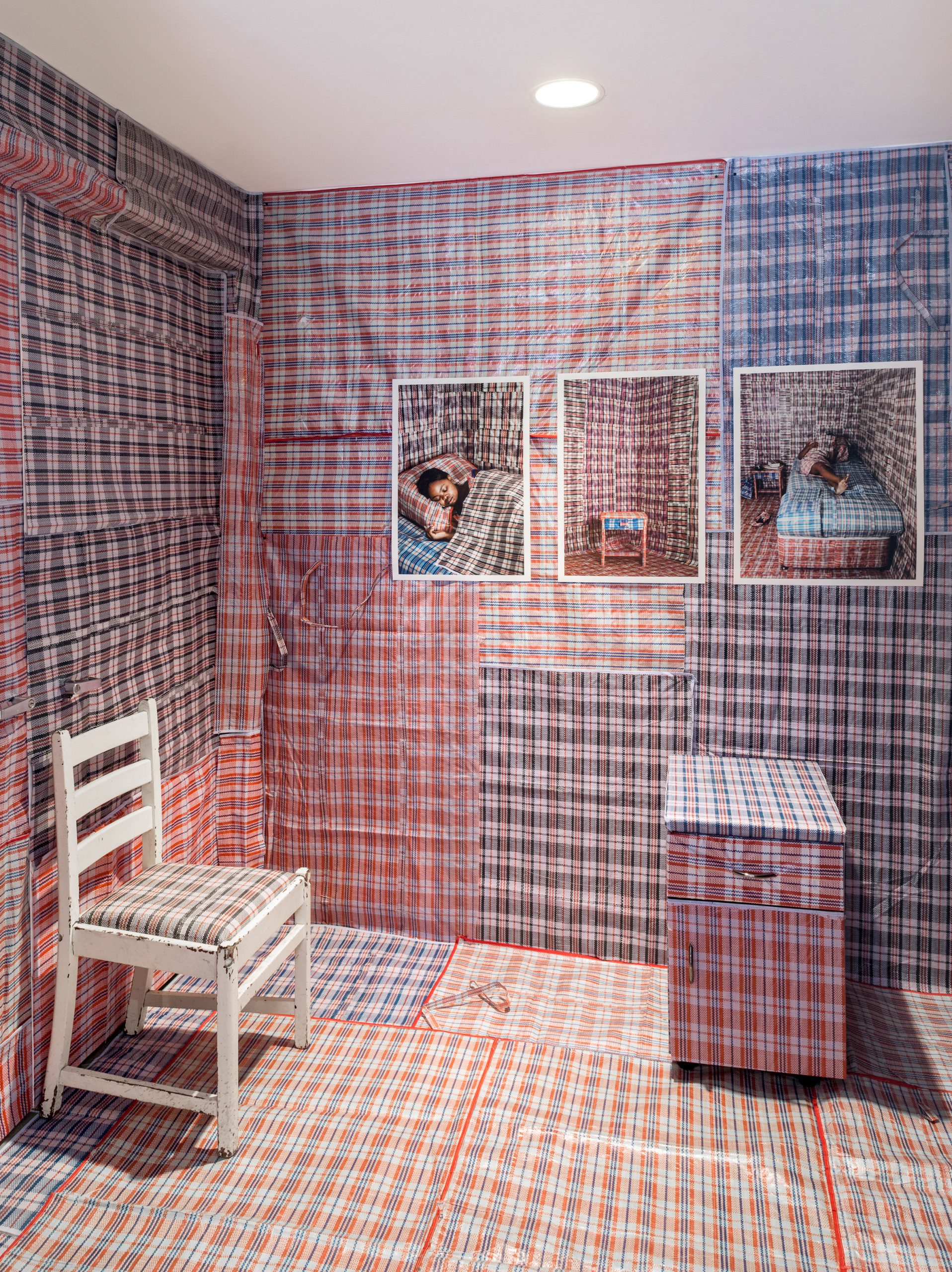
"They are always associated with immigrants and the people who use them are seen as homeless. And at the same time, the bags are a symbol of home because their home, most of the time, is carried in these bags," said Liechtenstein.
"Although Nobukho is not a classic furniture designer, I think she really has a sense for what the symbology of an object can be."
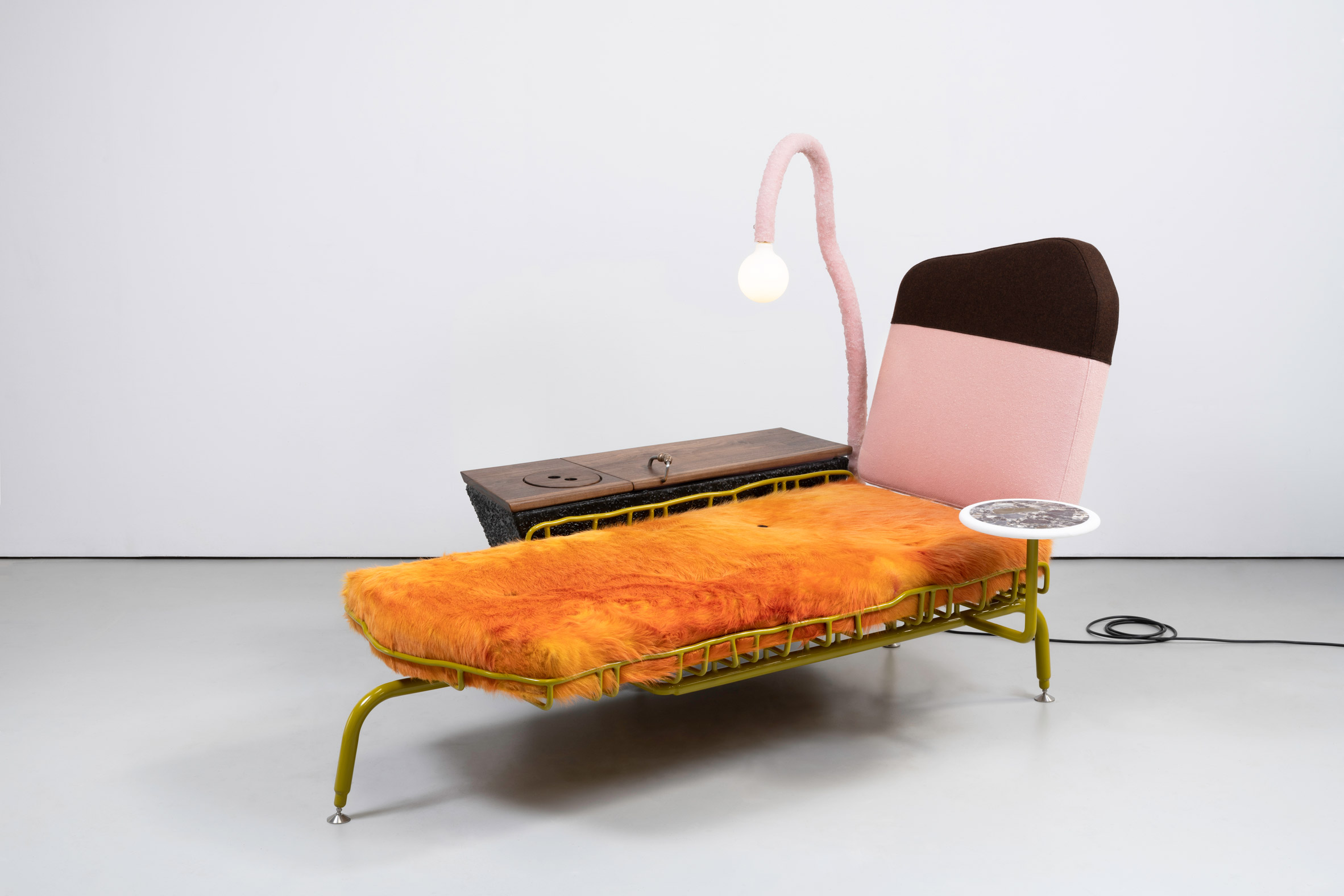
Several pieces were commissioned especially for the exhibition, including a lounge chair by British designer Jonathan Trayte that can help to create a sense of escapism for its user during lockdown.
It features a built-in lamp, a bar with an icebox and a side table on which to prop a laptop, creating a kind of island onto itself that allows the user to pretend they're somewhere more exotic.
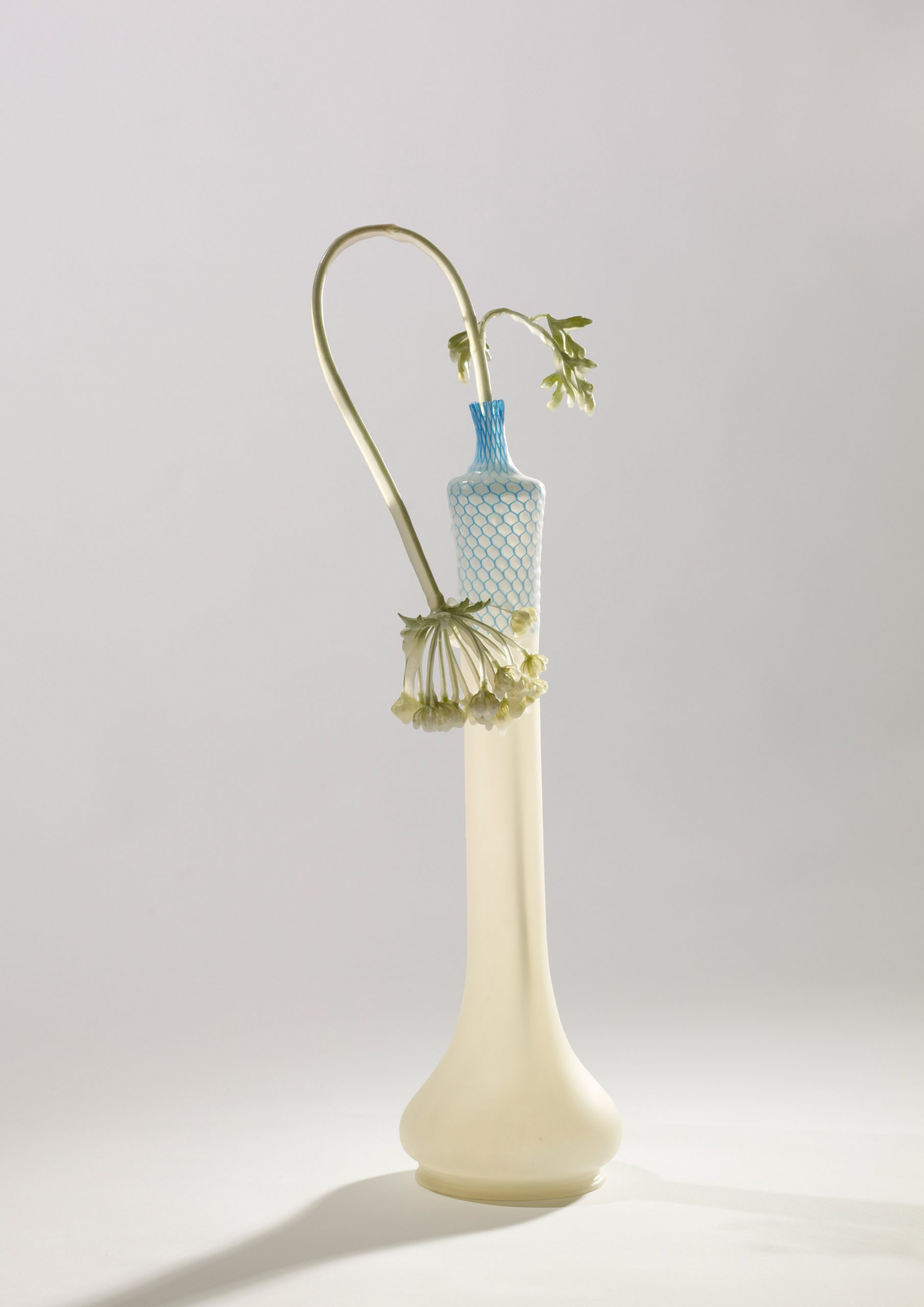
Also taking part in the exhibition are Wieki Somers, Rich Aybar, Thomas Ballouhey, Emma Fague, Fernando Laposse, Chris Schanck, Brynjar Sigurðarson, Katie Stout, Soft Baroque and Toomas Toomepuu.
Split Personality is on view at Friedman Benda Gallery in New York until 6 February 2021. See Dezeen Events Guide for an up-to-date list of architecture and design events taking place around the world.
The post Friedman Benda showcases furniture pieces with a story to tell appeared first on Dezeen.
from Dezeen https://ift.tt/36yLQz7
No comments:
Post a Comment